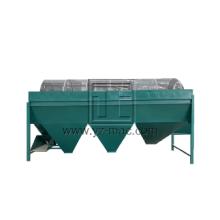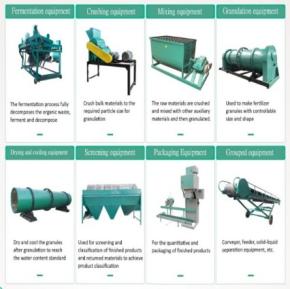Vermicompost machinery
Vermicompost machinery plays a crucial role in the production of vermicompost, a nutrient-rich organic fertilizer produced through the process of vermicomposting. This specialized equipment automates and streamlines the vermicomposting process, ensuring efficient decomposition of organic waste materials by earthworms.
The Significance of Vermicompost Machinery:
Vermicompost machinery revolutionizes the vermicomposting process, providing numerous advantages over traditional manual methods. It allows for large-scale production, consistent quality control, reduced labor requirements, and improved efficiency in nutrient cycling. By utilizing vermicompost machinery, organic waste can be effectively converted into high-quality vermicompost, contributing to sustainable agriculture and soil health.
Key Components of Vermicompost Machinery:
Vermicompost Beds or Trenches:
Vermicompost machinery incorporates specially designed beds or trenches where organic waste and bedding materials are placed. These beds provide the optimal environment for earthworms to thrive, facilitating efficient vermicomposting.
Feeding System:
The feeding system of vermicompost machinery allows for controlled and consistent feeding of organic waste materials into the vermicompost beds. This ensures a balanced nutrient input and promotes optimal earthworm activity.
Temperature and Moisture Control:
Vermicomposting requires suitable temperature and moisture conditions. Vermicompost machinery often includes temperature and moisture control systems that help maintain the ideal environment for earthworms’ growth and decomposition processes.
Screening and Separation:
To obtain high-quality vermicompost, the machinery incorporates screening and separation mechanisms. These processes remove any undecomposed materials, earthworm cocoons, and other impurities, resulting in a refined and uniform final product.
Benefits of Using Vermicompost Machinery:
Increased Production Capacity:
Vermicompost machinery enables large-scale vermicomposting operations, significantly increasing production capacity compared to manual methods. This allows for the processing of substantial amounts of organic waste, making it suitable for agricultural, horticultural, and commercial applications.
Improved Efficiency and Nutrient Cycling:
With vermicompost machinery, the vermicomposting process is streamlined, ensuring consistent feeding, temperature, and moisture control. This leads to efficient decomposition, faster breakdown of organic matter, and enhanced nutrient cycling. The resulting vermicompost is rich in essential nutrients, beneficial microorganisms, and humic substances, which greatly improve soil fertility and plant growth.
Quality Control:
Vermicompost machinery incorporates screening and separation mechanisms that help ensure consistent and high-quality vermicompost production. The removal of impurities, undecomposed materials, and earthworm cocoons results in a refined final product with uniform texture, nutrient content, and microbial activity.
Labor and Time Savings:
By automating the vermicomposting process, vermicompost machinery reduces the need for manual labor and minimizes the time required for production. This increases operational efficiency and allows for better resource allocation and utilization.
Vermicompost machinery plays a vital role in organic fertilizer production through vermicomposting. By automating and optimizing the vermicomposting process, it enables large-scale production, consistent quality control, and efficient nutrient cycling. The use of vermicompost machinery enhances production capacity, improves efficiency, ensures quality control, and saves labor and time.








